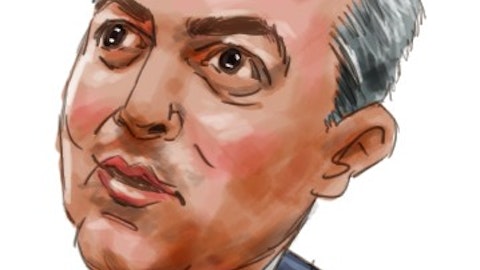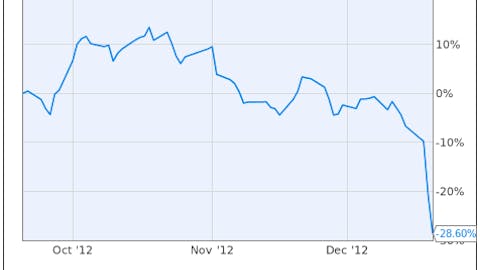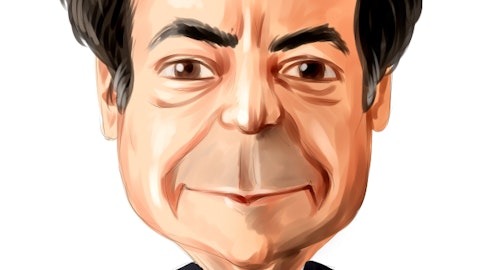David Einhorn told you to buy GM (MarketWatch)
General Motors GM +0.59% is up 8% today on the news that the company will be repurchasing a large number of shares from the federal government. The Treasury Department still owns a large stake, but claims that it is committed to selling the rest of its shares in the next year or so, implying that it is willing to take a large loss on its shares, as the current stock price is well below breakeven for the government. One of the winners from this move in the stock price is Warren Buffett. Berkshire Hathaway owned 15 million shares at the end of September. Another winner is Greenlight Capital, managed by billionaire David Einhorn. Greenlight had increased its stake in GM by 24% during the third quarter of 2012, to a total of 21.6 million shares (see Einhorn’s favorite stocks) , and at the Value Investing Congress in early October, Einhorn had listed GM as one of his two long picks.
Hedge fund Sloane Robinson hit by emerging market slowdown (Reuters)
The slowdown in emerging markets is hitting hedge fund Sloane Robinson hard, highlighting how, even as the industry attracts investors, managers can quickly fall from grace if they fail to perform. The London-based stock-picker – one of the capital’s oldest managers and once among its 10 biggest – has seen assets under management slide to around $2.5 billion, down more than four-fifths from a 2008 high of $15.1 billion. Assets in the firm’s flagship emerging markets fund – run by chief investment officer Richard Chenevix-Trench – have fallen to around $700 million, down from $1.8 billion at the end of 2011, and investors are bracing for a second consecutive year of losses.
Billionaire John Paulson’s Hedge Fund: Too Big To Manage (Forbes)
During the credit crisis John Paulson made a huge hedge fund fortune betting against mortgage-backed securities in what has become known as the greatest trade ever. After posting huge returns in 2007, investors flooded Paulson’s hedge funds with massive amounts of new money, which he gladly accepted. That may have been his mistake. By the end of 2008 Paulson’s hedge fund firm was managing $36 billion and it has become clear that managing all that money has been a very difficult thing for him to do. On Wall Street in recent years, the phrase “too big to manage” has been directed at big banks like Citigroup Inc. (NYSE:C) and, in the last year, even JPMorgan Chase & Co., but it may very well also apply to hedge funds.
The Best Part Of Bill Ackman’s Presentation Was When He Served Everyone In The Audience Herbalife (BusinessInsider)
Let it never be said that Bill Ackman lacks a sense of showmanship. Today he presented his thesis for why Herbalife, a nutrition company with a multi-level marketing scheme, is an excellent short. He says that the company relies on sales-people to distribute the product to consumers, but since the consumers become sales people who then buy the product whole-sale, the company isn’t bringing in enough revenue. That’s a basic pyramid scheme. To keep it going, Herbalife needs more salespeople all the time. After the presentation, Ackman invited everyone to try Herbalife’s array of shakes and juices (you can check out the picture below). Business Insider’s Julia La Roche was there, and she said that vanilla shake that she tried had a chalky taste.
Hedge Funds’ New Normal: Lower Returns, and Possibly Fees (InstitutionalInvestorsAlpha)
As the hedge fund industry wraps up another year of so-so performance, investors are starting to realize that the outsize returns that made the industry famous are largely a thing of the past. Back in the 1990s, managers like George Soros, Julian Robertson, Michael Steinhardt, Leon Levy, Jack Nash and Stanley Druckenmiller earned their Wall Street status — and their relatively high fees — primarily because they typically posted huge gains. It was not unusual for any of these managers to be up by 50 percent or 60 percent for several years, let alone in a single year, by rapidly trading, sometimes taking big, unconventional bets.
Segal Rogerscasey: Hedge Fund Predictions in 2013 (ai-CIO)
The hedge fund industry has certainly suffered its blows, but a rosy year looks set to be in store for the sector, says Tim Barron, the chief investment officer of consulting firm Segal Rogerscasey. During the next five years, he expects hedge funds are to likely receive investments of up to $1 trillion. “Fund managers need to be prepared for those assets, particularly if they’re reaching out to public and corporate pensions,” he says, noting that he foresees particular opportunity from those types of institutions. The reason for the optimism, in a nutshell: Institutional investors are not getting the returns they need elsewhere.





